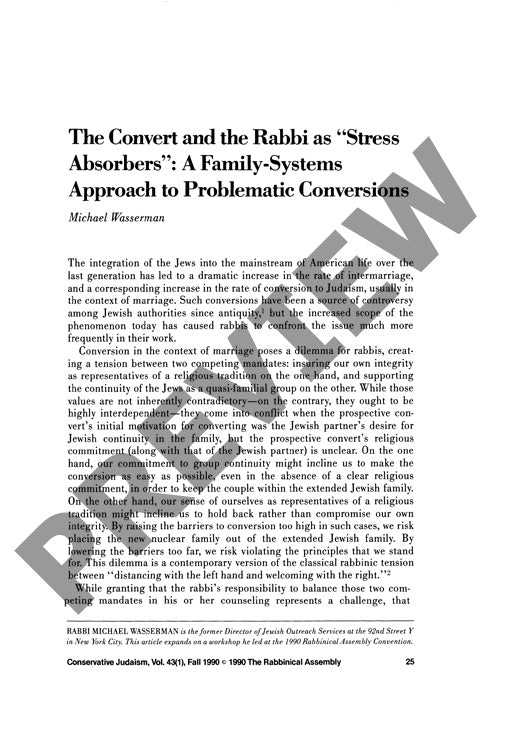The Convert and the Rabbi as Stress Abso
Couldn't load pickup availability
When prospective converts to Judaism seek approval for intermarriage, both they and their supervising rabbis often become unwitting "stress absorbers" in complex family dynamics. By analyzing problematic conversion cases through Bowenian family systems theory, this research maps how emotional triangulation emerges between converts, Jewish partners, and families of origin. A detailed case study reveals how Jewish partners' lack of emotional differentiation from parents creates an inability to articulate independent Jewish identity, forcing non-Jewish partners to shoulder responsibility for family religious continuity without adequate support. The analysis identifies three hallmark characteristics of problematic conversions: impersonality in Jewish attachment, rigid definitions of Jewish authenticity, and internal conflict regarding Jewish identity. Successful rabbinical counseling requires shifting focus from judicial authority over conversion to facilitating emotional self-differentiation, challenging both partners to define their personal Jewish commitments, and empowering them to negotiate shared religious identity. This approach enables rabbis to move beyond the traditional tension between "distancing with the left hand and welcoming with the right" by addressing systemic relationship dynamics rather than merely evaluating conversion readiness.

More Information
-
Physical Description
-
Publication Information
Published 1990
ISBN
-
Publication Credits
Michael Wasserman

